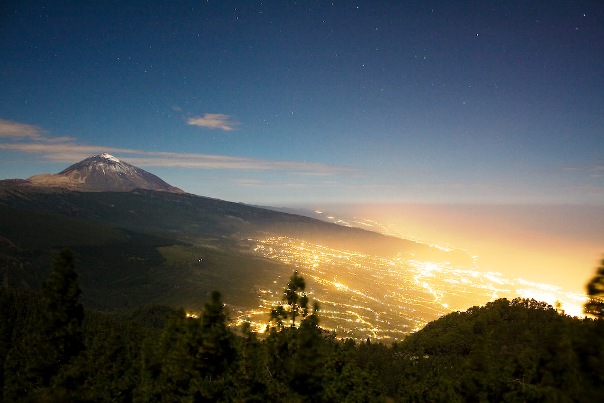LED Lights could help cut Light Pollution
Posted by Richard Clarke on 10th Jul 2012
By now the benefits of LED Lights will be familiar to most people. As well as using less energy, they last many times longer and contain no harmful chemicals. However, the fact that LED Lights can help to reduce light pollution may come as a surprise, particularly as few people know what light pollution is.
What is light pollution?
Light provides many valuable benefits and is something we deliberately seek in order to improve safety and visibility. This may be illumination for a section of road, part of a building or a garden driveway. Ideally, a light source should provide just enough illumination for its purpose. Sadly, this is not always the case.
Light pollution refers to any luminance from a light source that is "wasted" either because it is not needed or it has been misdirected. Light pollution is generally associated with external light sources, such as street lamps and floodlights, and results from poor planning or misapplication.
The effects of light pollution vary considerably. For most it is viewed as a nuisance, but light pollution has also been known to disrupt nocturnal ecosystems and can have adverse effects on health. Waste is also an issue and light pollution is believed to cost the US $10 billion a year.
Light pollution is a much bigger problem in densely populated areas where lighting is used in greater concentration. One of its chief side effects is a phenomena called sky glow, which is caused by light scattering into the atmosphere and obscuring the view of the night sky.
Research has shown that light pollution is so bad that two thirds of the world's population and 99 per cent of people living in continental USA and Western Europe never see a truly starry sky where they live.
As well as sky glow, there are three other main types of light pollution. These are glare, spill-over and over-illumination.
Glare
Glare is the excessive contrast between light and dark areas in our field of view and can result in temporary blindness.
Spill Over
Also called trespass light, spill over is light that extends beyond its target object or encroaches on a neighbouring property.
Over-illumination
Over-illumination refers to any object or building that is excessively lit.
One of the best ways to combat light pollution is at the planning stage. By designing and planning lighting systems that are better suited to task, light pollution can be significantly reduced. Ordinary street lights rely on a reflector to spread their light, which causes most of their luminance to be lost. As LEDs use lenses instead of reflectors they allow for greater control over light placement, resulting in less light pollution.






